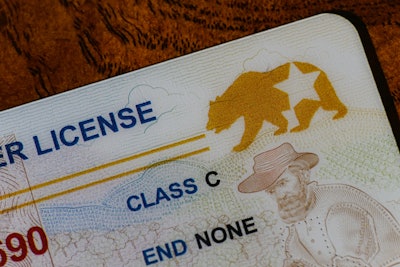
Logistics and supply chain operations are big business, and where big business exists, opportunistic threats are quick to emerge. For supply chains and logistics firms, these threats have become so widespread that cargo theft is expected to reach record levels in the United States, with estimated losses to the U.S. economy exceeding $35 billion annually. This latest surge is far from a new trend, as CargoNet reported a 14% year-over-year increase in theft during Q3 2024, signaling an issue that shows no signs of slowing down. It’s time for action to be taken.
Establishing the cause of cargo theft
The alarming increase in cargo theft is not limited to specific regions or industries – incidents of theft are widespread, affecting everything from consumer electronics and pharmaceuticals to food and beverage shipments. High-value items are especially attractive to organized criminal networks, which continue to become more sophisticated in their methods, largely fueled by advancements in technology such as generative AI which criminals are using to create false identities or forge documents. It is also becoming increasingly more difficult and costly for authorities to track and recover stolen goods, and this combination has led to an exponential increase in cargo theft.
Given the levels of sophistication at which criminals are operating, supply chain fraud is becoming an industry of its own. In the past few months alone, there have been a number of high-profile reports of organized cargo theft rings operating in major U.S. cities, indicating that it’s not just an operation that is growing in frequency, but also in proficiency. The consequences of these thefts go beyond financial losses, straining supply chains, disrupting inventories, and impacting business reputation and operational consistency. In a bid to offset these losses, companies often increase product prices which ultimately transfers the cost burden to consumers.
The implications of the ongoing surge in cargo theft are far-reaching as stolen goods frequently reappear on black markets, further impacting the prices of legitimate products and damaging consumer trust. This places further financial pressures on customers already grappling with a rising cost of living, turning a business problem into a societal issue and bringing unpredictability into revenue forecasts. To further the negative business impact, experiencing repeat thefts can trigger increases in insurance premiums, adding another layer of financial strain to logistics operations.
Supply chains are complex in their very nature with goods passing through multiple touchpoints, distribution links, and suppliers before arriving at their final destination. While essential for running a smooth operation, this provides criminals with multiple opportunities to exploit weak links and interrupt the supply chain. Comprehensive security measures, such as ID verification and cargo tracking are more essential than ever to mitigate against any vulnerabilities.
Who is behind the wheel?
Fraudulent identification documents are commonly used to commit cargo theft without leaving a paper trail. Latest data from IDScan, obtained from the scans of over 18 million identities, found that one in 20 (4.7%) driver IDs in logistics are fake, while an additional 1.2% are either expired or otherwise invalid. While one in 20 may seem inadequate, if we take the data from American Trucking Association (ATA) that there are 3.6 million professional truck drivers in the United States, that equates to just short of 170,000 fake or invalid IDs in circulation.
These fraudulent IDs raise a pressing question on a critical vulnerability. Who is in the driver's seat? And what impact is caused by enabling unauthorized individuals to access sensitive supply chain operations?
This underlying identity crisis highlights a pressing need to implement stringent identity verification measures to ensure that operators at each point in the supply chain are who they say they are. Without reliable systems to authenticate the identities of drivers and personnel supply chains remain vulnerable to infiltration and theft.
ID verification is a crucial step in supply chain security
A proactive strategy, with robust ID verification at its core, is essential if the issue of cargo theft is to be effectively addressed. While advancements in AI and other technology have exacerbated the challenges at hand, they also have the capability of providing the solution as AI-powered verification systems can enable businesses to authenticate drivers and logistics personnel. This ensures that only authorized individuals have access to valuable cargo.
As the saying goes, prevention is better than the cure, and the same rings true for cargo theft. The financial and reputational impact of losing goods in transit cannot be understated. When robust identity checks are in place, the risk of detection increases, acting as a deterrent for potential offenders. It also makes it significantly harder for criminals to exploit vulnerabilities in the system, reducing the likelihood of theft and fraudulent activity.
Another remedy that AI-powered ID verification solutions provide lies in their ability to analyze vast datasets, flagging suspicious patterns and detecting the presence of a false or invalid ID instantly. These systems offer a sophisticated layer of security, making it more difficult for fraudsters to exploit existing loopholes in supply chain processes. By integrating ID verification systems with authoritative databases, such as those maintained by the Department of Motor Vehicles (DMV), real-time validation of driver credentials can be obtained. This goes a long way to eliminating the risk posed by expired or fraudulent IDs and providing a reliable safeguard against unauthorized access.
Taking back control
Implementing advanced ID verification is not just about protecting the goods being transported, it’s also about regaining control of wider supply chain operations. As we’ve established, supply chain theft is becoming increasingly organized and sophisticated, requiring protective solutions to keep pace and stay ahead of emerging threats.
By prioritizing ID verification and leveraging modern technology, the logistics industry can plug any existing security gaps, prevent unauthorized access, and deter criminal activity. By adopting this proactive approach, businesses will be empowered to safeguard their assets, protect consumers against rising costs, and regain control in the fight against cargo theft.



















